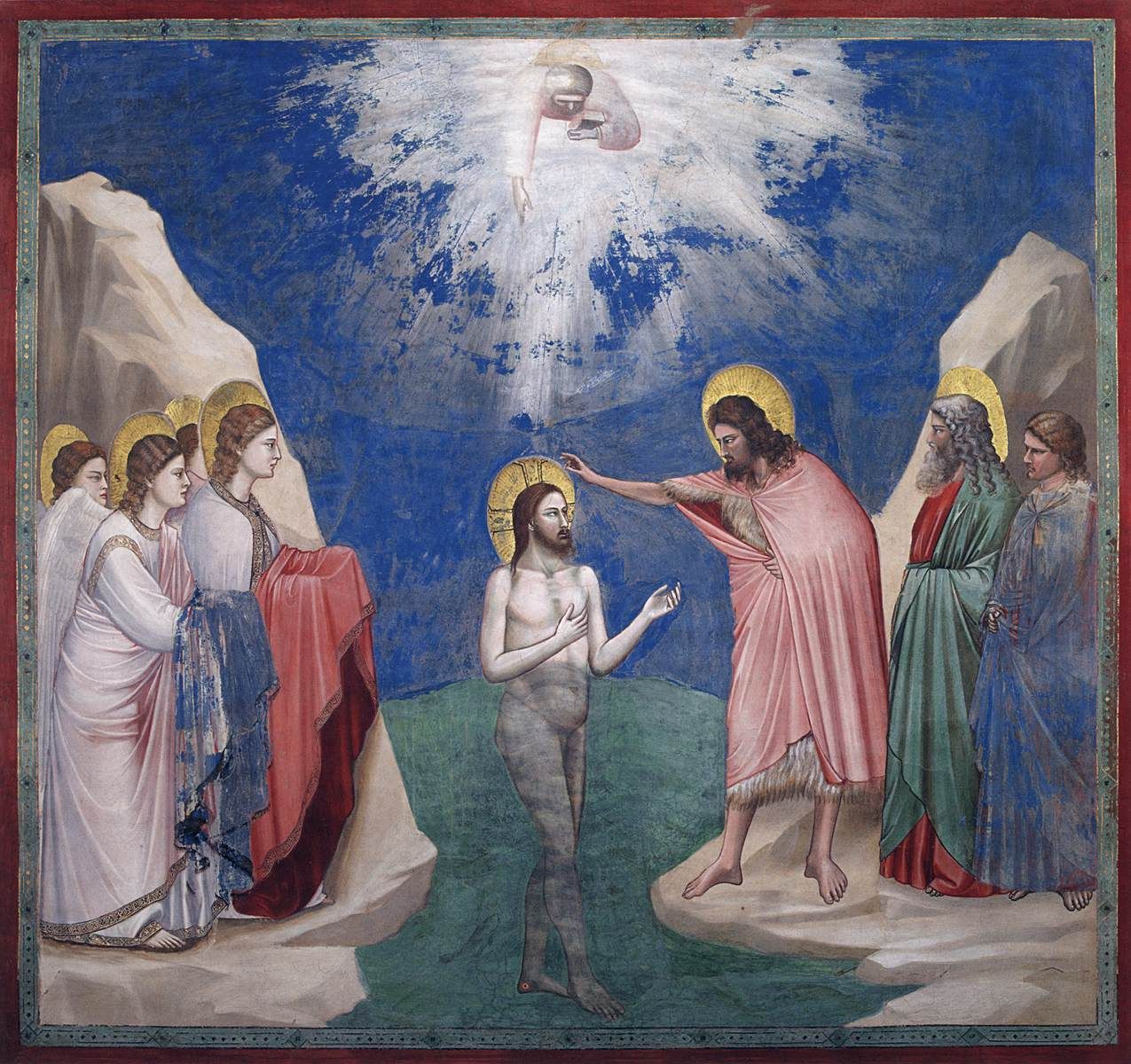Baptism of the Lord
Homily by Father Andrew

There is an old wives tale which says that if a child cries at its baptism it is a sign that the devil has left and the baby now belongs to God. Like most people I don’t remember my baptism, being rather young at the time, but apparently, I was completely silent, so make of that what you will.
The story of the baptism of our Lord is one of the elements in the Gospels that is guaranteed to get everyone from Biblicists to theologians hot under the collar. In fact, the early church historian Henry Chadwich goes so far as to say that the baptism of Jesus was a source of great embarrassment to the early Christians and we know that even John the Baptist found it strange and, tried to prevent it happening. Why was this?
John’s baptism, like the one we have all received, was a summons to repentance; it was a call to turn away from sin, renounce evil and embrace the new life God offers. Now one thing we can all agree on is that Jesus was not a sinner, standing in need of repentance in fact the opposite was the case. As St Paul puts it, Jesus came into the world to save sinners and he alone is the acceptable sacrifice that breaks down the barriers between us and God. This then leaves us with the question as to what relevance John’s baptism had for Jesus, and why did he subject himself to it?
Pope Emeritus Benedict, in his book Jesus of Nazareth sees it as a symbolic act, a sign to show that Jesus was not prepared to cling to his equality with God but was willing to identify himself with sinful humanity, with those who he had come to help and to heal. When he stepped into the river Jordon, he was placing himself alongside each one of us and aligning himself with us. He did this, neither to condone sin nor to become sinful himself but to show that God so loved the world that he gave his only begotten Son so that all who believed in him might be saved.
What Jesus did by receiving baptism at the hands of John was to serve as a model for the rest of his public ministry. He did not keep himself separated from those who were sinners but opened his arms to them. He did not wait for them to come to him with a sanctimonious look on his face but he would seek them out and live among them.
Though completely sinless, Jesus took upon himself our sinful condition in order to raise us up to become the people God intends us to be. He does not stand apart from us but puts himself besides us so that we might know the joy of God’s forgiveness and the freedom which is ours as sons and daughters of God. He wants to lead us from our captivity to sin and death and bring us to life eternal. In his baptism heaven and earth, God and his creation are reconciled.
Jesus does not condemn us or keep us at arm’s length, but welcomes us as a Father welcomes a wayward child with his arms wide open in a loving embrace. He is the one who stands on the shores of time and beckons to us; he is the one who says to us “come to me all who labour and are overburdened and I will give you rest for your souls”. He invites us into a loving encounter with the one who calls us away from the dark night of sin and into the brightness of a new dawn.
The baptism of Jesus reminds us of our own baptism, and gives us the opportunity to commit ourselves once again to a life of love and service. As members of his mystical body, we can now give to God a service worthy of those who are called to be children of God, an offering that is acceptable to the Father. Through the mystery of our baptism, we have been blessed by the Holy Spirit of God and transformed into a new creation in order that through us creation might be transformed.
Today’s Gospel reminds us that, like John, we have a duty, an obligation to proclaim Jesus as the Lamb of God the only one who can take away our sins. As followers of Jesus, we are asked to declare ourselves for him before a world that is, at best, indifferent to the message of love that he brings and to lay down our lives out of love for him who loved us so much. We have to stand up and be counted because our baptismal calling demands it of us and be prepared to give an account of the hope we have. We are called to forgive as we have been forgiven and to love as we have first been loved. For it is only when we are willing to do so that our lives will be transformed and through us, the whole of creation. Then we will hear the voice of the Father saying: “you are my beloved, my favour rests on you”.









